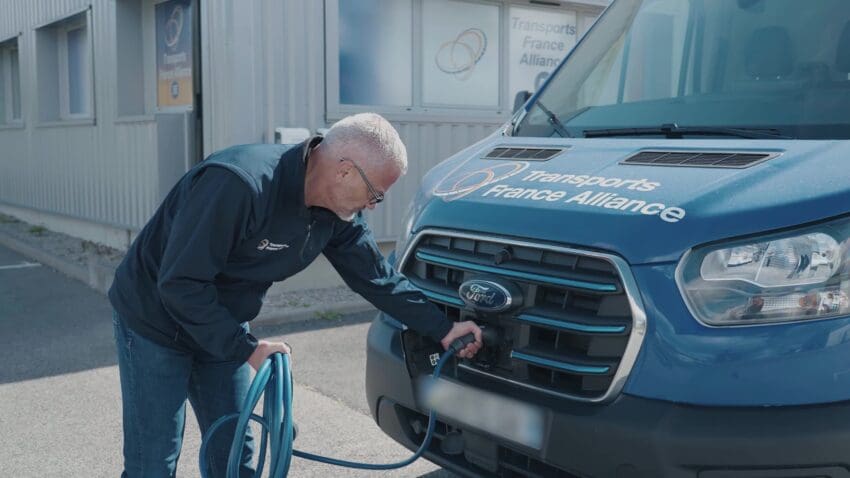
Small businesses could save £11,500 per van by going electric
Small businesses could cut their fleet cost by tens of thousands of pounds by switching to electric vans, according to a leading think tank.
The Centre for Economics and Business Research (CEBR) estimates that in the UK, firms would save £11,635 per vehicle over three years by swapping diesel for electric.
The economic consultancy was commissioned by Ford Pro to look at the financial of running commercial vans across Europe.
It concluded that the reduced running costs in fuelling and maintenance offered ‘significant’ savings in five major European van markets, including the UK. The biggest savings were found in France, where businesses could save an estimated €19,000 per vehicle (£15,800), and Spain, where savings were as much as €16,000 (£13,300).
One of the barriers to businesses going electric is the cost of vans. An electric Ford E-Tranist Custom starts at £43,380, compared with £32,350 for a diesel version. However, Ford says that the savings in running costs more than cover the extra purchase price over a three-year ownership period.
The cost of charging an EV, especially if it is done during off-peak hours, brings some of the biggest savings. Based on official figures, charged on the UK’s best EV tariff a Ford E-Transit Custom costs just 2p per mile, compared with 17.4p per mile for the diesel equivalent.
Ford also estimates that electric vans are 40% cheaper to service, maintain and repair thanks to being mechanically simpler than diesel-engined models.
Research by fleet experts epyx also shows that maintenance downtime is also lower for electric vans, saving operators time and money. The data, which tracks the first four years of vehicle life, shows that in the first year average servicing times for electric vans are 0.74 hours, followed by ICE at 1.05 and hybrid at 1.15. EVs continue to have the shortest service times in years two and three, although ICE performs best in year four.
“The European economy is built on small businesses, and their adoption of electric vans is a critical next step to electrifying Europe’s roads. Some small businesses have already made a successful start to that journey and Ford Pro is ensuring that we have the electric vans and services to support them,” said Hans Schep, general manager, Ford Pro, Europe.
Despite the potential savings on offer, the electric van market has struggled to develop in the same way as the passenger car sector. The latest data from the Society of Motor Manufacturers and Traders shows that electric models accounted for just 7.7% of the new van market in November, short of the 10% required by the ZEV mandate..
More positively, November saw a second month of growth in eLCV sales as they jumped 36% to 2,322 units.